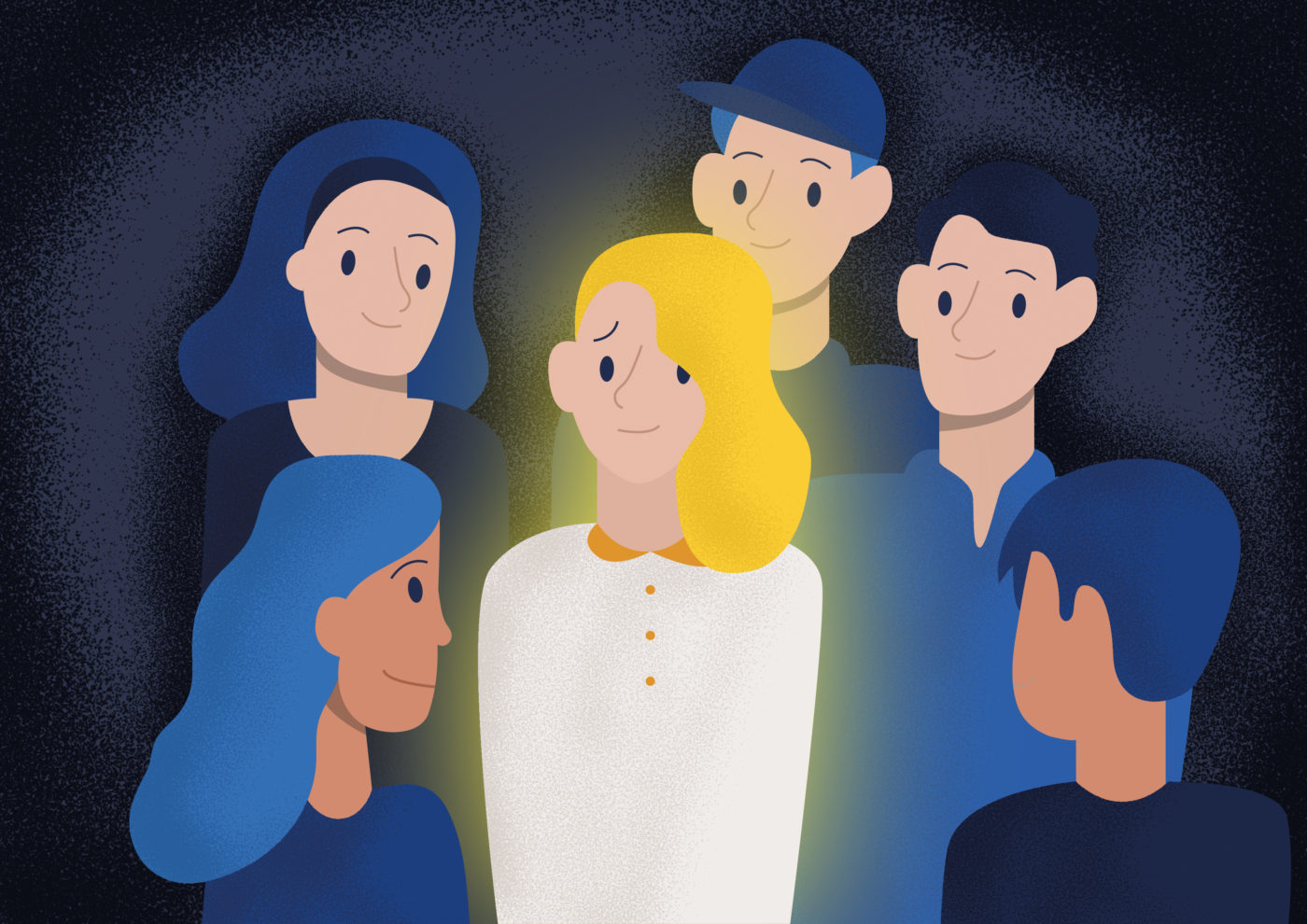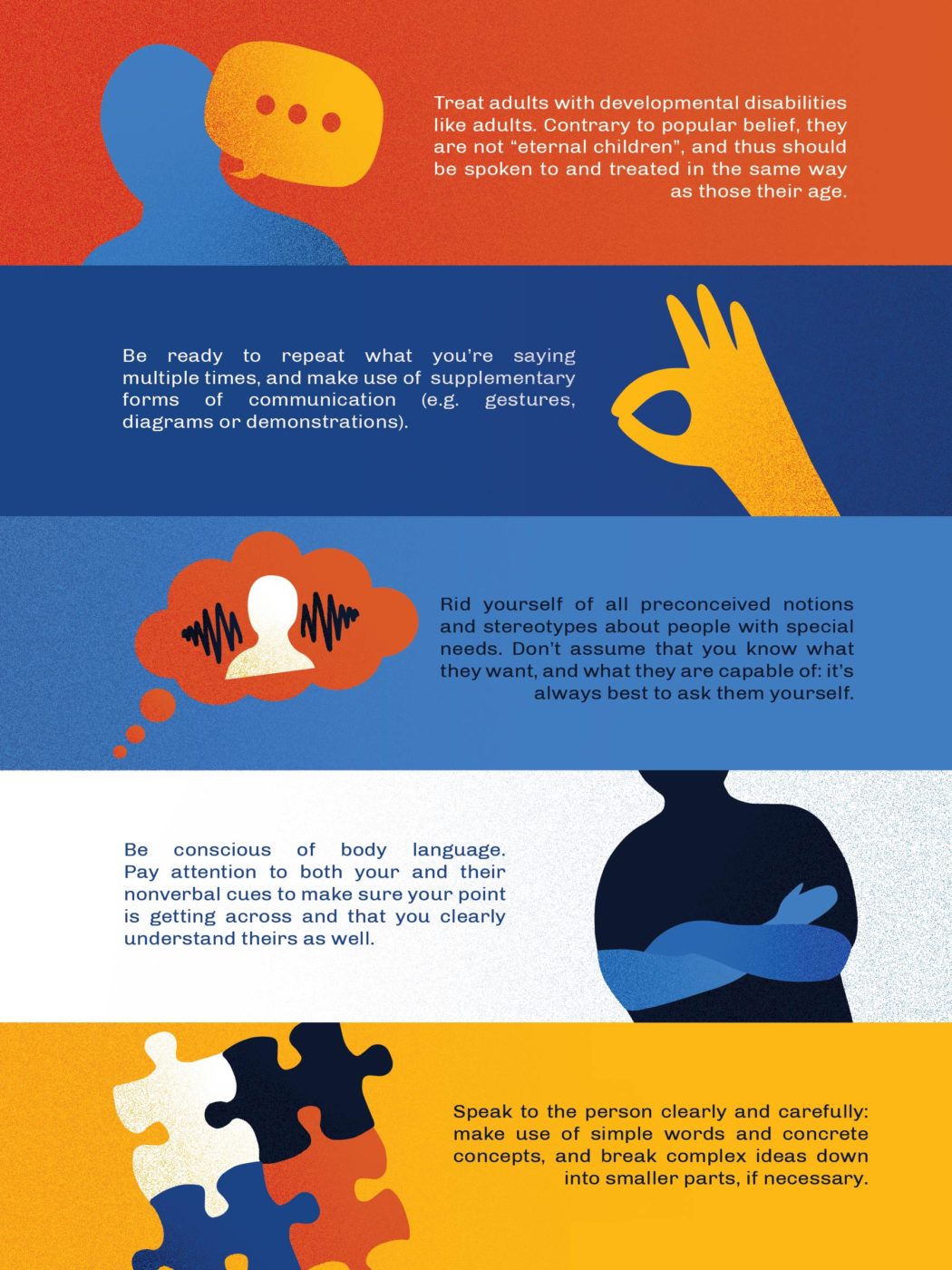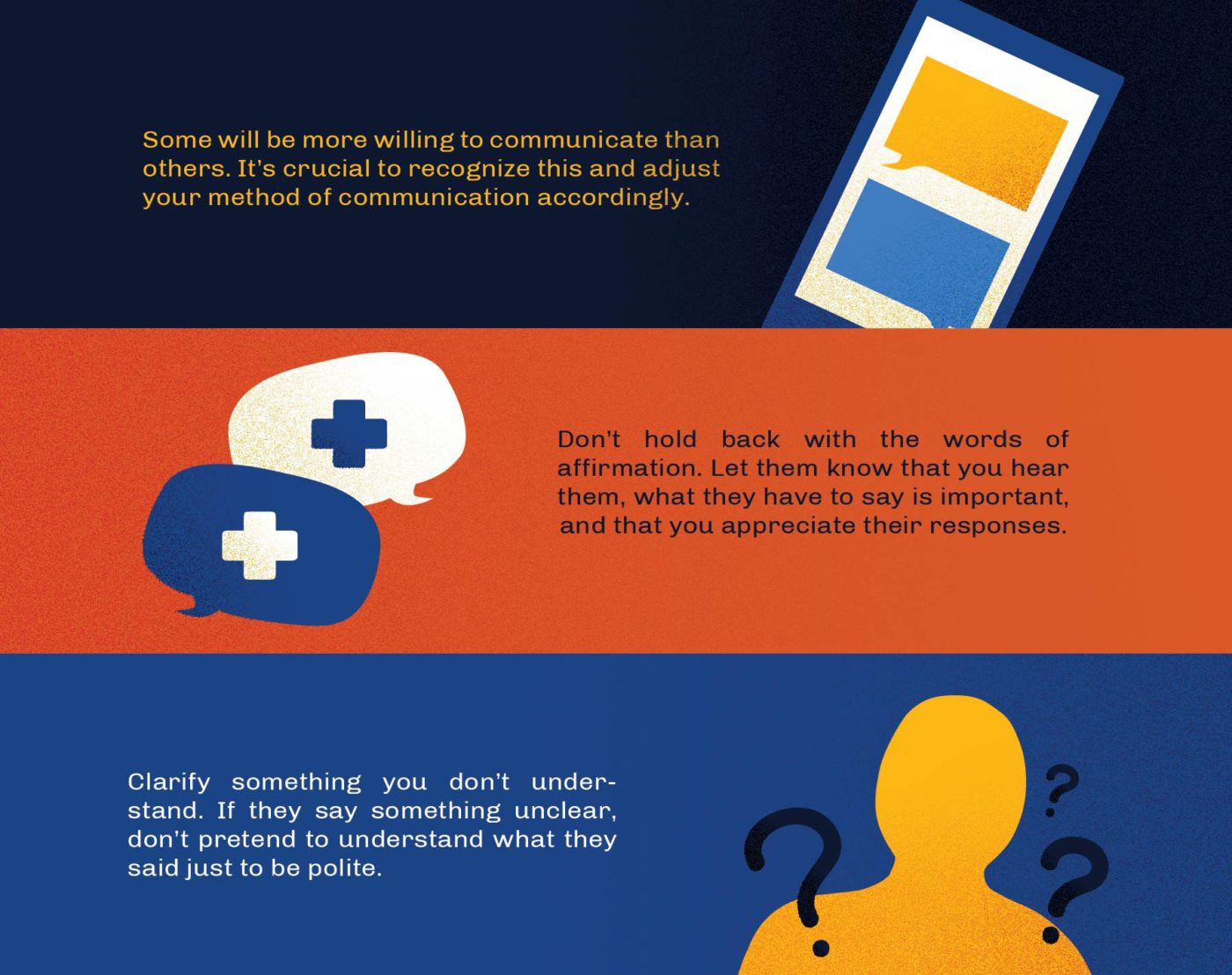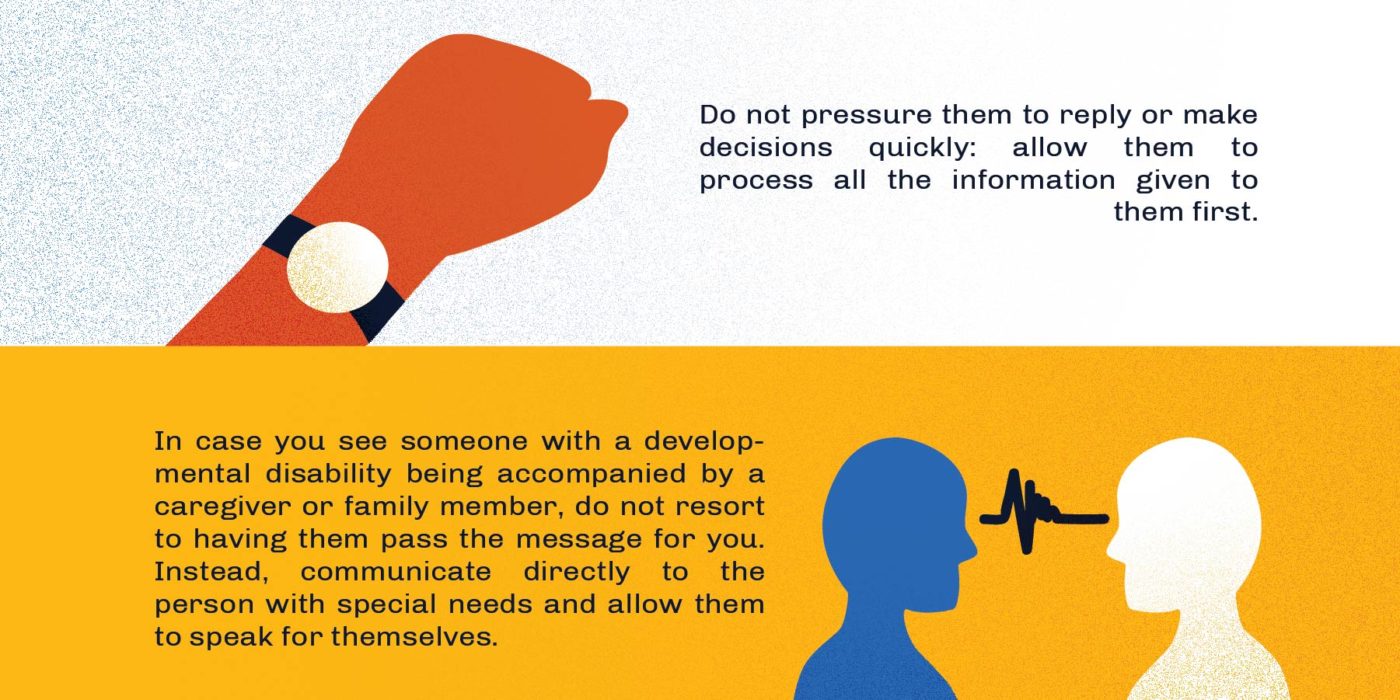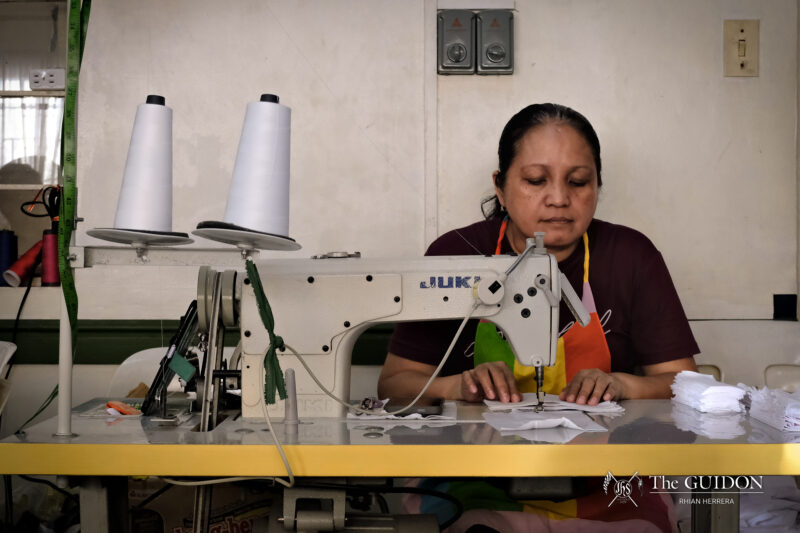Infographic by Lia Datiles
WHEN IT comes to persons diagnosed with Autism Spectrum Disorder (ASD), frequent and persistent features that affect how they interact with others tend to manifest throughout their life. The Indiana Resource Center for Autism mentions that those with ASD often struggle with picking up on language characteristics and engaging in social communication; these challenges are only amplified in a college setting.
Ateneans diagnosed with ASD also grapple with navigating their social and college lives as they face the additional challenge of raising awareness about the nuances of their condition in hopes of sparking discourse and discussion.
Defining a disorder
The Alaska Division of Public Health—a leading institution in autism studies—describes autism as an umbrella term for developmental disabilities that affect a person’s social, communication, and behavioral skills. The effects usually vary from person to person, which is why autism is characterized as a spectrum rather than a specific set of symptoms. Autism has since been classified into three main groups: Classic autism, Asperger’s, and pervasive developmental disorder.
Classic autism is also considered the most widely known classification of ASD. The Alaska Department of Health and Social Services’ characterizes classic autism as a developmental disability that tends to impair language use and limit imagination, reflected in repetitive patterns of behavior.
Meanwhile, those diagnosed with Asperger’s syndrome tend to exhibit less speech and language delays and cognitive impairments as compared to classic autism. “Asperger’s is high-functioning, meaning I could talk and I’m pretty intelligent, but I have trouble socializing,” says Ryan Ortega (2 BS CTM), who was diagnosed with the disability at the age of six. People diagnosed with Asperger’s tend to struggle most with aspects of social interaction, such as picking up on social cues or expressing emotions.
The last classification of autism is pervasive development disorder—most often considered as the mildest form of ASD. Pervasive development disorder serves as an umbrella term used for those who meet the criteria for autism such as atypical behavior or uneven skill development, but lack extreme symptoms like repetitive behavior and intellectual limitations.
Social stumbling blocks
Students diagnosed with ASD have take on different outlooks regarding academics and Ateneo’s school environment. “It’s pretty manageable. Sometimes it’s a lot, but I’m always very hopeful that I can pull through,” shares Ortega.
RDM*, a super senior with Asperger’s, says that considerate professors also make the academic college experience more inclusive. He fondly recalls professors who knew how to communicate with him because of their previous experiences with students who have the same condition.
However, there are still some struggles that Ortega and RDM have to face every day. RDM shares that his difficulty to verbalize his thoughts affects his performance during class recitation and his ability to socialize with others. “I’m sort of afraid of messing things up when I’m trying to interact with people, because […] it’s still really hard for me to see body signs or facial signatures,” he says.
The concern then shifts to whether people within the Ateneo community are truly prejudice-free. RDM adds that he has a lingering fear of informing professors of his condition lest he be viewed differently. “I’m actually scared […] [because] they might treat me worse because some people have looked down upon people with disabilities.”
In the process of understanding the different manifestations of their symptoms and how this affects their daily lives, students with ASD often find solace in being surrounded by those who understand their situation. Through social integration and acceptance, the Ateneo can move forward in making persons with special needs (PWSNs) feel more at home.
Comfort in community
An example of positive environments in school is the Ateneo Special Education Society (SPEED)—an organization that “envisions a society that understands and cares for persons with special needs.”
RDM was initially surprised to find out that such an organization existed, but SPEED served as a place for him to bond with others who have cognitive, learning, and social conditions. “I joined [Ateneo] SPEED, since […] I feel free with them because they actually know about [my condition],” says RDM.
PWSNs also help out with the organization’s different projects and initiatives. For Pia Cabañero (1-AB IS), who is diagnosed with ASD, her interest in graphic design is honed through her participation in SPEED’s Creatives Pool. “I did a lot of posters and a lot of art for SPEED. I just really like to show some of my skills,” she says.
These opportunities not only give PWSNs the freedom to explore their passions, but also serve as an avenue for empowerment. Positive communities like these are integral to PWSNs students’ growth, especially when constantly faced with the common misconception that PWSNs can’t function well in society. “Most people would just look at [us and think] na they’re weird in general, and say na they were probably dropped on the head,” RDM says.
According to Ortega, this idea cannot be any further removed from the truth. “A lot of [PWSNs] are [smart] and capable, [especially when] given the chance and help that they need,” he asserts.
People for others
Without a doubt, PWSNs are capable of contributing to a more inclusive Atenean community. However, the University itself must look into various efforts to ensure that the school fosters as space for growth and acceptance.
According to Office of Student Services assistant to the Director and SPEED moderator Ma. Estrella Paulino, one such initiative is the integration of a module on PWSNs to the Introduction to Ateneo Culture and Traditions classes. However, this targets only the freshman batch.
There have also been efforts to reach out towards University staff. According to Paulino, some teaching and non-teaching staff are given annual training on how to accommodate PSWNs. These sessions—headed by the Office for Student Services—involve Psychological First Aid training.
Additionally, Loyola Schools Office of Guidance and Counseling (LSOGC) guidance counselor Analyn Riptola adds that LSOGC remains in contact with PWSNs students to check up on how they are doing at home with their families and in school among their peers. These check-ups are done to ensure their general well-being and social integration.
Aside from keeping in touch with PWSNs, Ripotola shares that the LSOGC is keen on practicing psychotherapy for students who experience meltdowns during their classes.
When all is said and done, Ortega asserts that fostering empathy towards PWSNs requires a willingness to understand people who are and aren’t on the spectrum. “I think [other people] have to understand that we’re human,” he says. “We all have flaws. Nobody’s perfect, […] it’s a struggle for everyone to deal with.”
At the end of the day, inclusivity is a “two-way process,” as per Ortega, and perhaps there is no better way to put it. Inclusivity demands action from all members of the University–whether student, faculty, or administrator. There is much more that can be done in the process of raising awareness about the spectrum; while the University has had some initiatives, it is up to the community itself to foster understanding with one another, regardless of whether they are a PWSN or not.
* Editor’s note: The name of the interviewee has been changed at their request in order to protect their identity and privacy.

